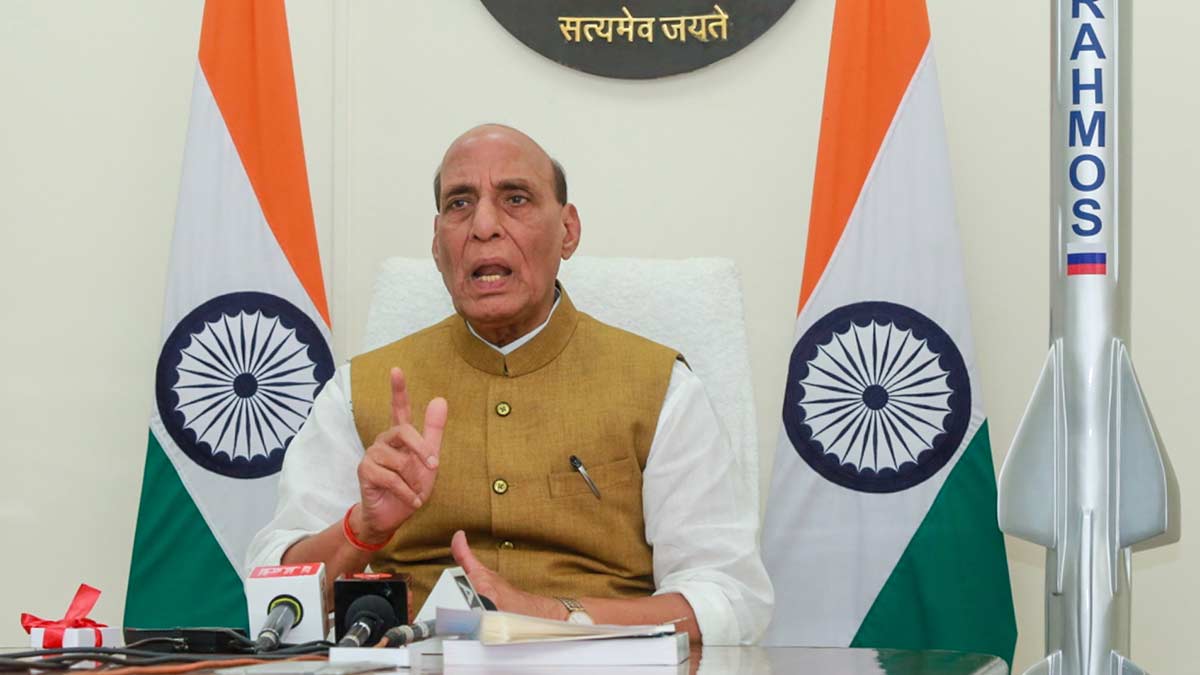SOURCE: AFI


On May 26, 2025, Defence Minister Rajnath Singh chaired a high-level review meeting in New Delhi with the chairpersons and managing directors of eight Defence Public Sector Undertakings (DPSUs), urging them to enhance production and focus on cutting-edge technologies to strengthen India’s defense preparedness.
The meeting, held amid heightened regional tensions following Operation Sindoor, highlighted the critical role of DPSUs in achieving self-reliance under the Aatmanirbhar Bharat and Make in India initiatives. Singh lauded the industry for its contributions to India’s defense capabilities, particularly during the recent operation, and emphasized the need for accelerated research and development (R&D) to meet the demands of modern warfare.
During the review, Singh commended the DPSUs for their projected contribution of 78% to India’s Rs 1.4 lakh crore defense production in FY 2024-25, as well as their presentation of an interim dividend of Rs 2,138 crore to the government. The eight DPSUs—Hindustan Aeronautics Limited (HAL), Bharat Electronics Limited (BEL), Bharat Dynamics Limited (BDL), Mazagon Dock Shipbuilders Limited (MDL), Garden Reach Shipbuilders & Engineers (GRSE), Goa Shipyard Limited (GSL), Hindustan Shipyard Limited (HSL), and Midhani—were recognized for their role in developing indigenous systems that proved instrumental during Operation Sindoor, a precision counter-terrorism strike conducted on May 7, 2025.
Singh urged the DPSUs to scale up production of advanced platforms and invest in R&D to address emerging threats, including drones, cyber warfare, and autonomous systems. “The government remains committed to strengthening the defense industrial base and enhancing the competitiveness of DPSUs,” he stated, emphasizing the need for innovation in fields like artificial intelligence and electronic warfare to counter evolving geopolitical challenges. The minister’s call comes in the context of recent developments, including Pakistan’s use of Chinese-made J-10 fighters and ZDK03 AWACS during hostilities, underscoring the urgency for India to bolster its indigenous capabilities.
Operation Sindoor, which targeted terrorist infrastructure in Pakistan and Pakistan-occupied Jammu and Kashmir (PoJK), showcased the effectiveness of India’s homegrown defense systems. The operation saw the deployment of Bengaluru-made SkyStriker loitering munitions, BrahMos supersonic cruise missiles, and DRDO-developed platforms like the Netra Mk1 AEW&C, demonstrating the DPSUs’ ability to deliver high-impact solutions. Singh praised the DPSUs for their contributions, noting that the operation’s success was a “symbol of India’s political, social, and strategic will.”
The minister highlighted the recent inauguration of the BrahMos Integration and Testing Facility in Lucknow on May 11, 2025, as a milestone in India’s self-reliance journey. The facility, completed in a record 40 months under Uttar Pradesh Chief Minister Yogi Adityanath’s leadership, will produce 100 BrahMos missiles annually, reinforcing India’s deterrence capabilities. Singh also noted the participation of private players like PTC Industries in establishing titanium and superalloy plants, signaling a robust public-private partnership model to drive defense production.
The review meeting comes amid heightened tensions with Pakistan, following a four-day conflict that ended with a ceasefire on May 10, 2025. The conflict saw both nations engage in cross-border strikes, with India neutralizing Pakistani air defense systems and destroying nine terror camps. Singh’s remarks during the meeting and earlier visits to Jammu and Kashmir emphasized India’s restraint and readiness, cautioning that any threat to sovereignty would face “quality action.”
NOTE: AFI is a proud outsourced content creator partner of IDRW.ORG. All content created by AFI is the sole property of AFI and is protected by copyright. AFI takes copyright infringement seriously and will pursue all legal options available to protect its content.